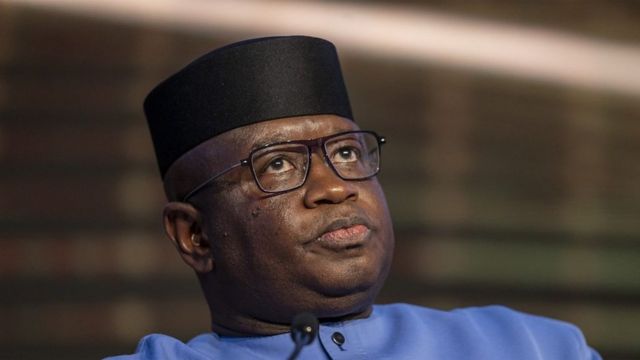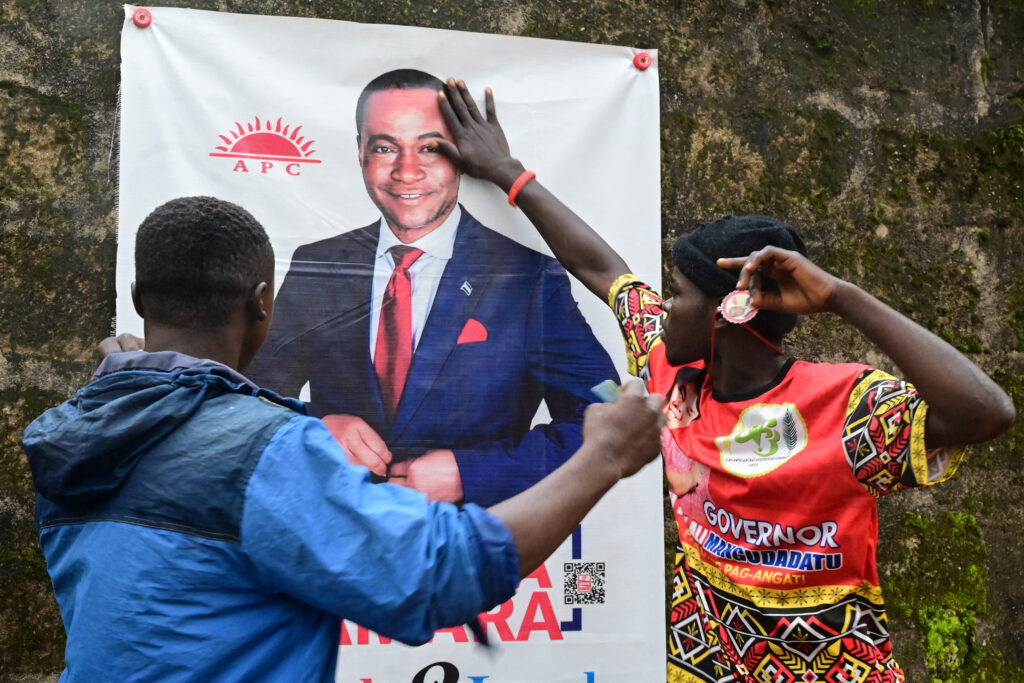
In the wake of incumbent President Julius Maada Bio’s declared win and subsequent inauguration for a second term, Sierra Leone’s main opposition party is demanding a re-run of the recent presidential election. The All People’s Congress party (APC) has accused the country’s electoral commission of colluding with Bio’s party to manipulate the election results. In a strongly worded statement, the APC called for the resignation of the electoral commission chairman, Mohamed Konneh, and his entire team.
The APC stated, “The fraudulent announcement of election results on June 25th was not just an outright theft of the votes of the suffering masses who desired change; it also poses the gravest threat to our democracy, unity, and national survival.”
Official results indicate that Bio secured 56.17% of the vote, surpassing his main rival, Samura Kamara, and thereby avoiding a runoff. Electoral officials reported that Kamara received 41.16% of the ballots cast.
Bio, who had already been sworn in for his second term a few days after the election, took to Twitter to urge “all Sierra Leoneans to remain peaceful and abide by the law.” He added, “This is a victory for every citizen, and we must now come together, as elections are behind us, to pursue our common goal of developing our beloved country.”

There are concerns that those who dispute the election results may take to the streets. Sierra Leone has already witnessed demonstrations in recent months, with citizens protesting against the state of the economy. With nearly 60% of the country’s population, comprising over 7 million people, living in poverty and youth unemployment at one of the highest levels in West Africa, tensions remain high.
The APC’s demand comes at a time when pressure is mounting on the electoral commission to disclose its process for tabulating the election results. While regional observers such as the African Union and ECOWAS deemed the elections to be free and fair, Western observers have highlighted a lack of transparency in the counting and tabulation process. The European Union, the United Kingdom, the United States, and France, in particular, have urged the electoral commission to publish results from each polling station.
